We all know how much the UK Wine Industry has grown in the past few years. One sign of that growth has been the explosion in the number of retailers specialising solely in English and Welsh Wine. These businesses are an important but underappreciated part of the industry, advocating for locally made wines, and providing a vital link between winemaker and wine drinker. In this series, I sit down with these retailers to chat about their unique view of the UK Wine Industry.
I recently interviewed James Hawkins, one half of Hawkins Bros, owners of a wine shop based in Milford, Surrey. Along with his brother, Simon, he started the business in 2016 after spending 16 years running pubs in Sussex and Hampshire. As with the other retailers I’ve interviewed in this series, I was interested to find out how they became interested in English Wine: “Back in 2007, I was living in Tillington and my next-door neighbour had planted a few small rows of vines. I thought he was mad, but I watched the vines grow and helped out in the vineyard”, James explains. “He sent his grapes off to Ridgeview to be made into wine and it was incredible.”
“I had tasted Nyetimber before but thought it was some sort of anomaly. For someone to do it next door was a revelation.” Coincidentally, Nyetimber also own a vineyard in Tillington, which has the distinction of producing the fruit for the estate’s only single-vineyard wine. His neighbour, Andy, would go on to plant more vines before selling the vineyard to Roebuck Estates, and almost immediately afterwards planting another vineyard for himself next-door.
Soon after this experience, James took a job working for the Exceptional English Wine Company before teaming up with his brother to found Hawkins Bros. Early on, the brothers realised the importance of having a physical shop: “I understand people’s scepticism about English Wine, so I knew I had to get the people to taste it first”, James explains.
Consumer reluctance over locally made wine has been brought up by all the retailers I’ve spoken to whilst writing this series. As a result, those who work in the industry have to be part-expert, part-salesperson, and part warrior-monk. The Hawkins brothers fit this mould perfectly.
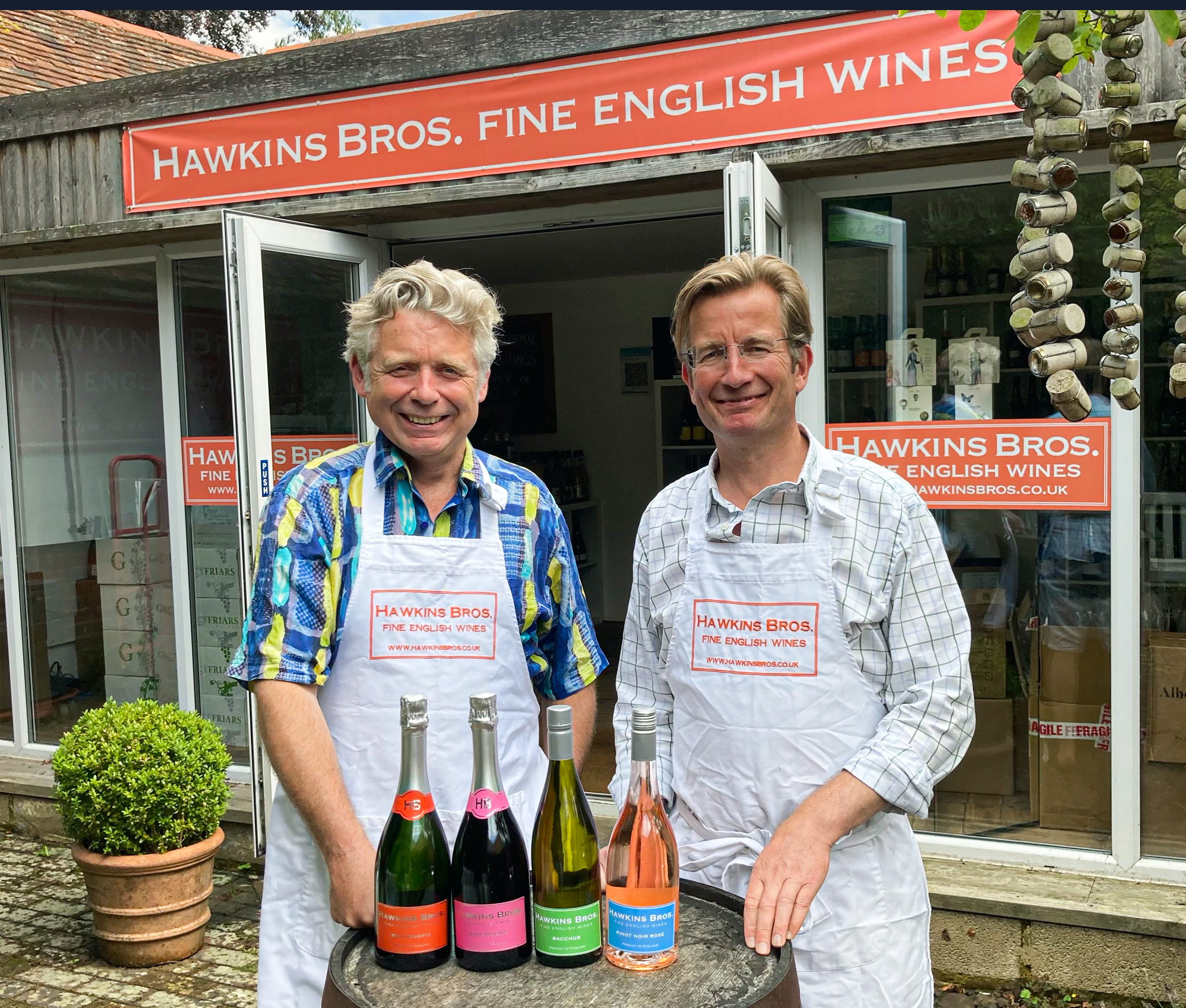
They found the ideal space for their store in a disused annexe adjacent to a successful farm shop just outside Godalming in Surrey. “ I don’t think they expected us to be here for long”, he admits. “But we set up a gazebo in the courtyard and dragged people in to taste the wine.”
But despite the initial doubts, Hawkins Bros has been a hit with the wine drinkers of Surrey. “We started with 13 producers, all of whom we already knew and now we stock 40”, exclaims James. ‘English Wine is no longer a novelty and I hope we’ve played a small part in that change of attitude”, he adds.
Winemakers themselves have been helpful in that evangelisation. “Every weekend we’d have a different producer set up underneath the gazebo giving out samples of their wine and people have been amazed”, James says. Explaining the history of English winemaking was met with further surprise, he explains: “You’d say that Christopher Merret codified how to make sparkling wine before Dom Perignon had even set foot in a monastery and people would react with disbelief.”
Thanks in part to the efforts of retailers like Hawkins Bros, the reputation of English Wine has improved markedly in the last ten years. Homegrown wines, led by sparkling and followed by still, have found their ways onto the wine lists of top restaurants and the dinner party tables up and down the country.
I was curious to see what he thought about the future of the industry and, in particular, a couple of trends that have emerged over the past few years. The first is the proliferation of canned wines: “I think it’s a great innovation. They’re light, they’re infinitely recyclable and can be sold in a single serve format”, James explains. “Of course, you can’t make Traditional Method Sparkling because that process creates too much pressure for the can to handle.”
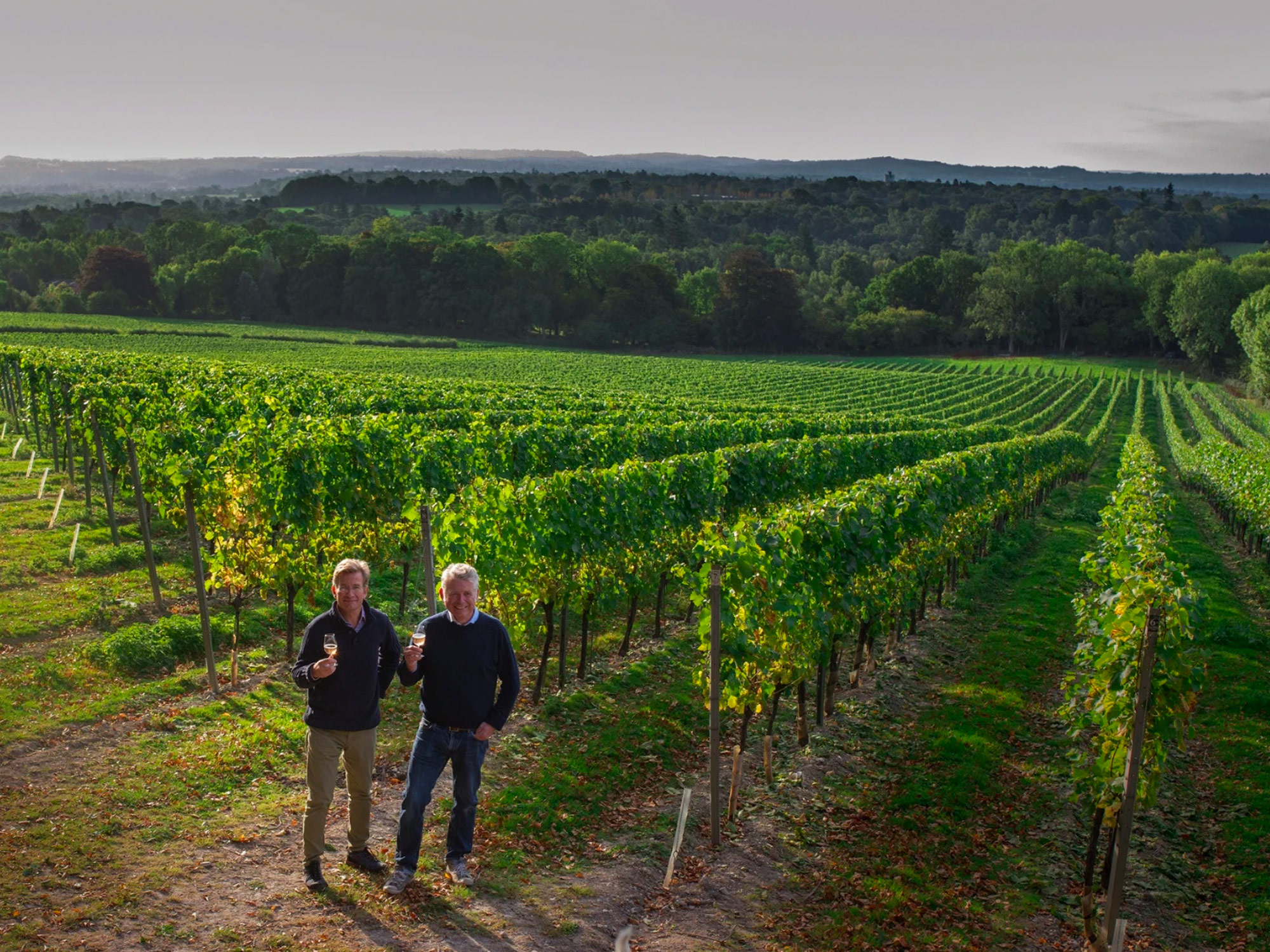
A related development is the growing use of the Charmat Method to make sparkling wine. The process sees yeast and sugar added to large amounts of still wine sitting in a pressurised tank. This then causes a second fermentation which creates the CO2 needed for the wine to become fizzy. Most English Sparkling, however, is made by fermenting the wine a second time in a bottle, a process that is costly and time-consuming.
The introduction of Charmat is controversial. It produces a style of sparkling wine that is fruitier and less complex than the ‘Traditional Method’ and is widely used to make Prosecco. This Charmat Method can produce a bottle of sparkling wine in as little as a few weeks. At its fastest, a bottle of Traditional Method Sparkling might take a year to get from grape to glass, although many producers keep their bottles for much longer to improve the wine’s complexity.
Some worry that this could undercut the producers making pricey but high-quality, bottle-fermented wine. “I think a lot of wine drinkers don’t know the difference, so I understand why it’s upsetting Traditional Method winemakers”, James explains. “But it’ll give a new entry point into the market for people who usually spend less on wine. The nice thing about English Wine is that the rule book hasn’t been written. I’ll still be here explaining the difference.”
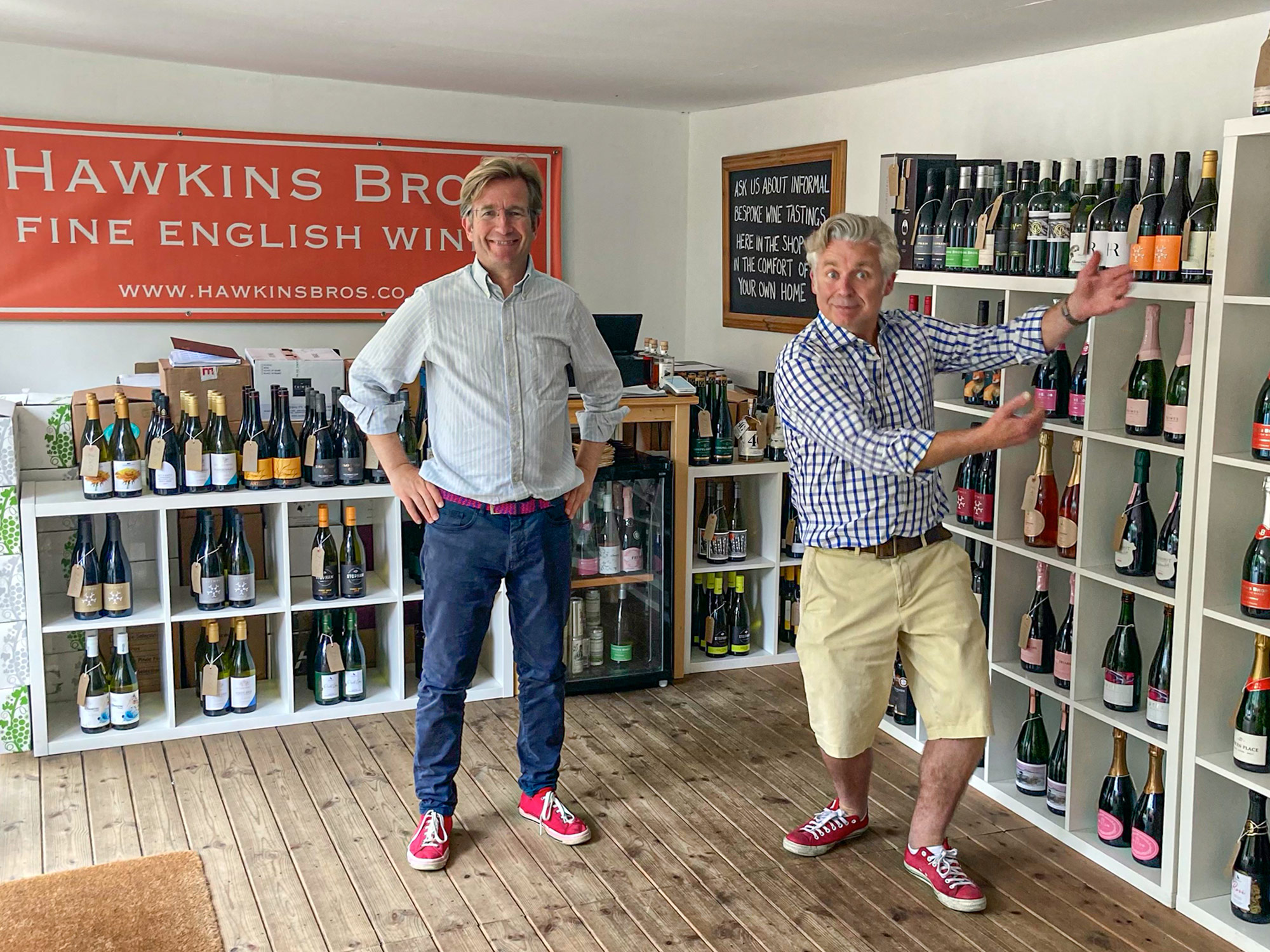
Hawkins Bros Brut Reserve 2014
Grapes: Chardonnay, Pinot Noir, Pinot Meunier
Region: Surrey
This is the flagship wine of the Hawkin Bros’ own-label wines, produced on their behalf by Greyfriars Vineyard down the road on the Hog’s Back of the North Downs.
The nose is a gentle mix of ripe orchard fruit and lemon zest with a nice dollop of richness courtesy of five years spent ageing on the lees.
The palate has a good balance between fresh acidity, persistent bubbles, and a creamy texture. This wine offers exceptional value for money and is the ideal introduction to English Sparkling Wine.
They say: “They’re just three miles from us so we approached Mike Wagstaff, the owner of Greyfriars. It was a fairly short conversation when we spoke to him. We asked if he’d make a wine for us and he said: “Yes, of course!””
Hawkins Bros Bacchus 2018
Grapes: Bacchus
Region: West Sussex
Stopham Vineyard, located just outside Pulborough, was founded in 2007 and specialises in the production of still wine. The vineyard is planted on the same greensand ridge as Nyetimber, which provides fantastic drainage when it rains and is much warmer than the surrounding soils, helping the grapes ripen.
The nose is the quintessential mix of green apple, fresh pear, and elderflower for which Bacchus is known.
On the palate there is a gentle touch of texture complementing what is otherwise a very fresh, light-bodied white wine. Once again, this is an excellent introduction to English Bacchus.
What James says: “I love all of Stopham’s wines. We sell an awful lot of his Pinot Gris and Pinot Blanc so I really wanted him to make a Bacchus for us.”
Hawkins Bros. Pinot Noir Rosé 2019
Grapes: Pinot Noir, Chardonnay
Region: Surrey
Heading back to Surrey, Greyfriars have whipped up a must-have for any English Wine retailer: a fresh, pale Provençal pink wine.
The nose is delightfully concentrated with lots of fresh strawberry and raspberry aromas complementing a pleasant touch of Granny Smith apple and grapefruit.
The palate is suitably fresh with crisp acidity. There is plenty more fresh red fruit with a generous helping of zesty, citrus flavours. And it is, of course, completely dry.
What James says: “This is how I like my rosé: racy acidity, fresh fruit and as dry as dry can be.”

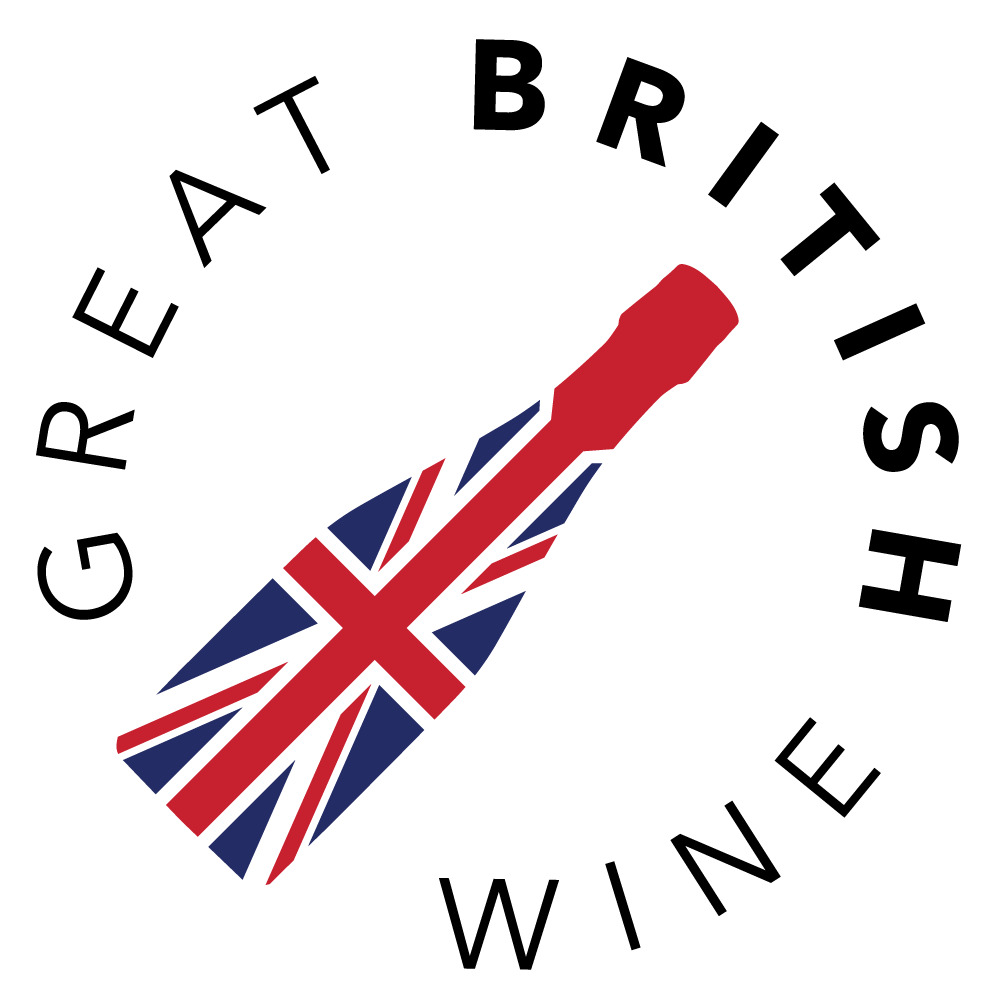
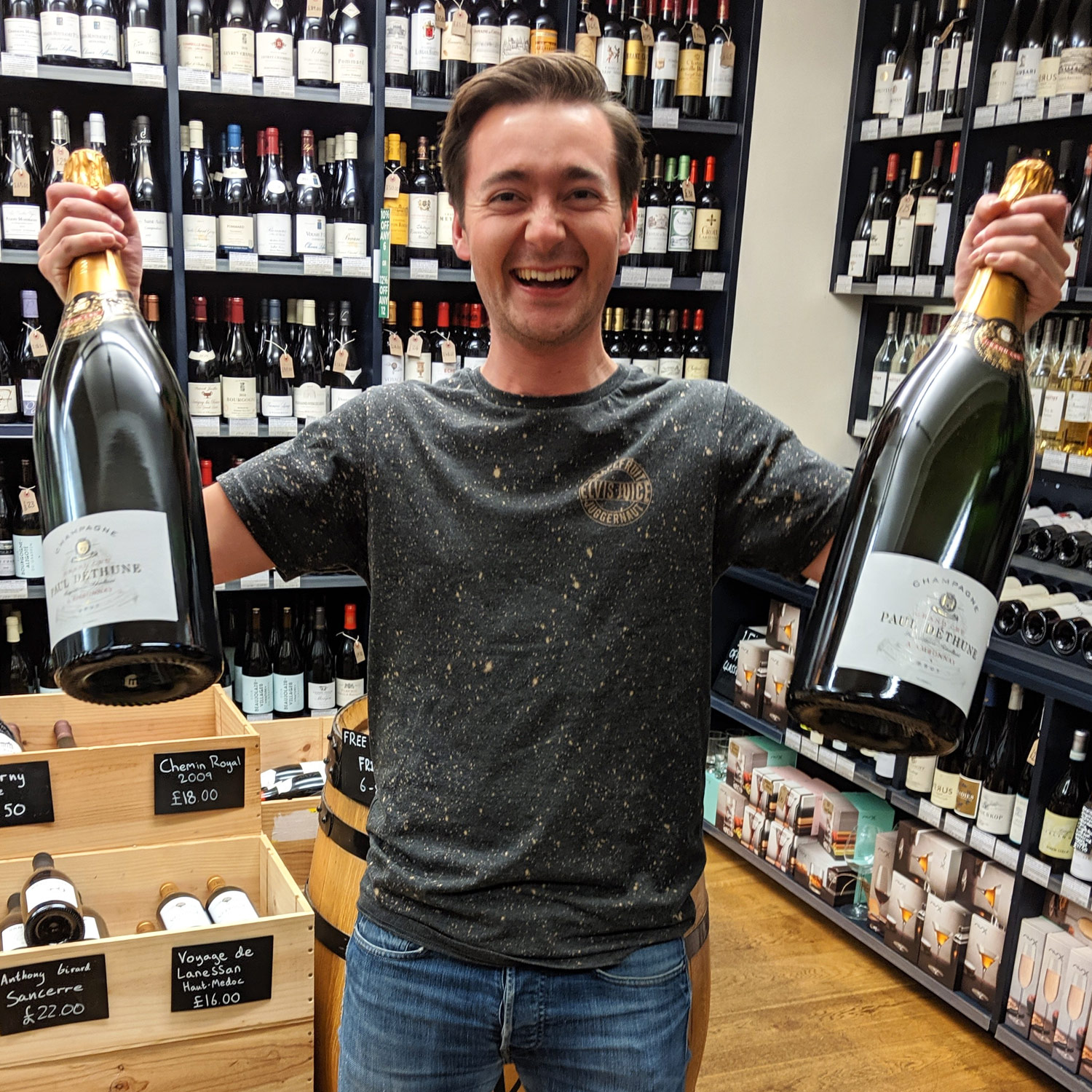
Pingback: This Week's Latest Wine Headlines: August 28—September 2 - Briscoe Bites